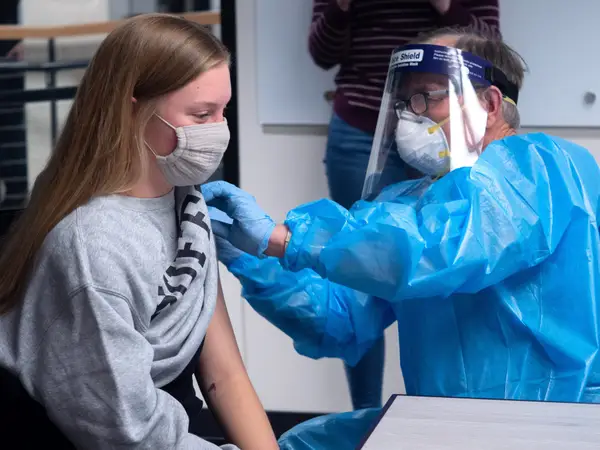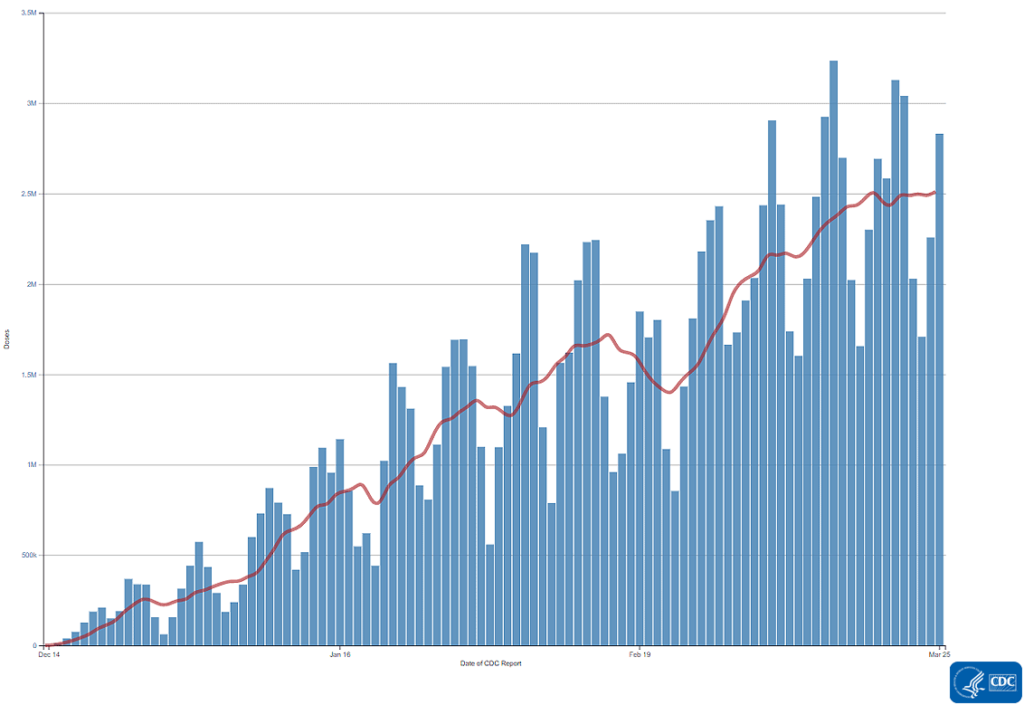By Erin Maxwell || News Editor

On Friday, Mar. 26, the COVID-19 Prevention Network (CoVPN) announced to the public a new nationwide Moderna study among college students, appropriately named “Prevent COVID U.” Supported by the National Institute of Health (NIH) and funded by the National Institute of Allergy and Infectious Diseases (NIAID), this study will track 12,000 students enrolled in 20 different universities for 5 months.
As vaccine rollout continues to steadily expand, attempting to battle the current upward case trends, the future of a fully vaccinated nation is still uncertain. As stated on the study’s official website, we still “do not know if the vaccine will prevent the virus from shedding from the nose and mouth and infecting others” (Prevent COVID U). In other words, we know that the vaccine protects immunized individuals from serious disease, but whether they can transmit the virus, or serve as asymptomatic “carriers” is yet to be determined.

The Study
The Research Question
As opposed to initial vaccine testing, which measured the efficacy of the immunization preventing COVID-19 disease in vaccinated individuals, this study would be the first to measure the transmission, or “viral shed” of those vaccinated. We already know that the vaccines protect us- but can they 1) limit the viral load in the nose, and 2) reduce transmission from vaccinated individuals to their close contacts?
The Experiment
12,000 college students from 20 different universities will be randomly assigned to either receive the Moderna (mRNA-1273) vaccine at the outset (Group A) or four months into the experiment (Group B). Every member of both groups will provide, in advance, a list of “close contacts.” The subjects of each group will be regularly tested, and close contacts will fill out questionnaires, take nasal swabs, and provide periodic blood samples to measure transmission rates. Upon detection of the virus, positive samples will be tested for the “viral load,” or how much of the virus is detected within the individuals.
The Goals
Systematic data is scant in the area of guidelines for vaccinated individuals. A designer of the experiment, Dr. Holly Janes from Seattle’s Fred Hutchinson Cancer Research Center, told the press that “what we would like to see is that the vaccine recipients who become infected had lower levels of the virus in the nose or a shorter duration of infection than participants who became infected and are not vaccinated” (Fred Hutch). Initial studies focused on if the vaccines worked. This study will focus on infectiousness and transmission.
The Results
This study aims to give measurable and empirical backing to evolving guidelines for the growing population of individuals. Additionally, although the study involves the Moderna brand vaccine, all results can be similarly attributed to the Pfizer dose, as they share a common mRNA technology. The experiment is scheduled to fully commence soon, but experts warn that results will not arrive until September, suggesting that the uncertainty around vaccinated individuals and may affect summer plans.
Until results show any statistical significance and new guidance can be logically constructed, the CDC and top public health officials recommend the continued use of masking, social distancing, and the avoidance of unnecessary travel. Though “pandemic fatigue” and loosening restrictions have lent to a lower propensity for citizens to abide by public health guidelines, top infectious disease expert Dr. Anthony Fauci has continually emphasized that the uncertainty of vaccinated transmission is a “question of extreme importance,” one that could affect the course of the upcoming summer and fall months (AXIOS).
Sophomore Erin Maxwell is the News Editor for the College Reporter. Her email is emaxwell@fandm.edu.